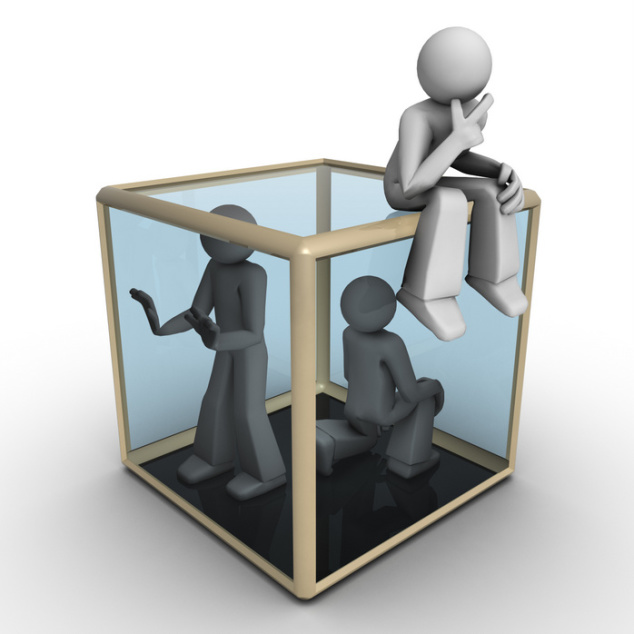Employee Happiness is not Your Responsibility, But if You Are Smart It Will Be Your Goal
Unless you’re paying attention to the new research, it is likely you still see employee happiness as a personal problem and not really a business issue. The truth is, every goal you have will come faster and easier if you and your employees are happy.
I agree it is not an employer’s job to make employee’s happy. In fact, employers can’t make an employee happy. Happiness is an inside job. If an employee is chronically less than happy, it does not really matter how much an employer tries to make him or her happy, the beneficial results will be temporary at best. At worse, the attempts will be viewed in a negative light.
Employees all want to feel happier. The desire to feel better is universal and the reason we do the things we do. We go to work because being employed feels better than not having income. If we’re lucky, we may go to work because we love our job but even then, doing something you love feels better than not doing it. If we don’t do something we might want to do, maybe have a piece of chocolate cake, we don’t do it because we believe we will feel better not having it than the benefit from having it. But if we’re in a low mood we may opt for the cake because the desire to feel better now is more important than a goal we will be more equipped to handle when we feel better. If we perceive we would feel guilty if we did not visit our parents on Sunday, we will visit our parents on Sunday even when we would prefer to do something else. The personal benefit of not feeling guilty feels better than the pleasure from the preferred activity.
Employee mood affects the decisions they make. Research has shown that employees who are in good moods demonstrate better corporate citizenship than employees in low moods.
So, if you can’t make them happy, what can you do?
You can take advantage of the natural desire to feel better and give them skills they can use to better manage their emotions. Stress reducing, happiness increasing skills provide their own intrinsic motivation because the result of using them is feeling emotionally better.
The benefits of providing skills to increase employee happiness serve a great many corporate goals including increased engagement, increased cognitive ability (lower mood = lower cognitive ability), improved health (immune function is directly affected by low mood), turnover (many people do not realize they take themselves with them and leave seeking greener pastures when they are the reason for their own dissatisfaction), complications of pregnancy (long-term low mood is strongly linked to preterm birth and has adverse planning impacts on employers when employees have to take leave sooner than planned AND when the employee then has to deal with the often long-term health impacts on their baby from preterm birth), higher divorce (while not an employer issue—it usually has an adverse impact on focus and attendance), pregnancy outcomes from a depressed parent result in higher incidents of asthma, sleep and behavior problems, and depression in the child before age 16–all of which can adversely impact work performance, employees may turn to alcohol and drugs to self-medicate for persistent low moods, obesity and diabetes (low mood disrupts digestive function and increases risk of both), the cause of obesity has been modified in the medical field from calories in – calories out = BMI to include stress/mood as a variable that affects BMI, and finally employee relationships and interactions with one another are directly affected (and contagious to some degree) by mood.
From all perspectives, teaching employees skills that increase their resilience, emotional state, and emotional intelligence are beneficial to the employer.
Why skill-based techniques instead of just providing a wonderful environment like Zappos?
A nice environment contributes toward mood, it does not cause it. Someone whose focus is habitually negative will not become positive just because the environment is wonderful. If you’ve ever been on a cruise, you may have noticed that even with one’s every need not only taken care of but catered to, some people remained unhappy and even miserable. Both unhappiness and misery are habits of thought more than anything else. Researchers have found many people living subsistence conditions who were happy—happier than others who were living in luxury.
If you’ve not been on a cruise, read through the reviews on Cruise Critic. You’ll see that some people had a great time when others found all sorts of reasons to maintain their habitual low mood.
Skills that help employees change habits of thought that keep them in lower moods than they could be enjoying provide immediate positive feedback, which increases motivation to use them. Even a brief increase in mood can benefit employers. The increased mood expands the cognitive abilities, which could result in the employee solving a work related problem that had he’d been working on for months—in a matter of minutes. Insights, intuition, and epiphanies increase as mood increases.
Even though immediate rewards are possible, the long term rewards are even better. Using the skills provides immediate positive feedback in the form of improved mood so employees continue using them causing mood to continue improving over time, increasing the chronic emotional state. Like any skill, as expertise develops, the outcome continues to improve with practice.
Stress reducing and happiness increasing skills are superior to dose dependent stress reduction strategies. The reason the dose dependent strategies are dose dependent is they are treating symptoms, not the root cause. The skill based techniques taught by Happiness 1st Institute address the root of the problem, which cures the problem at the root.

